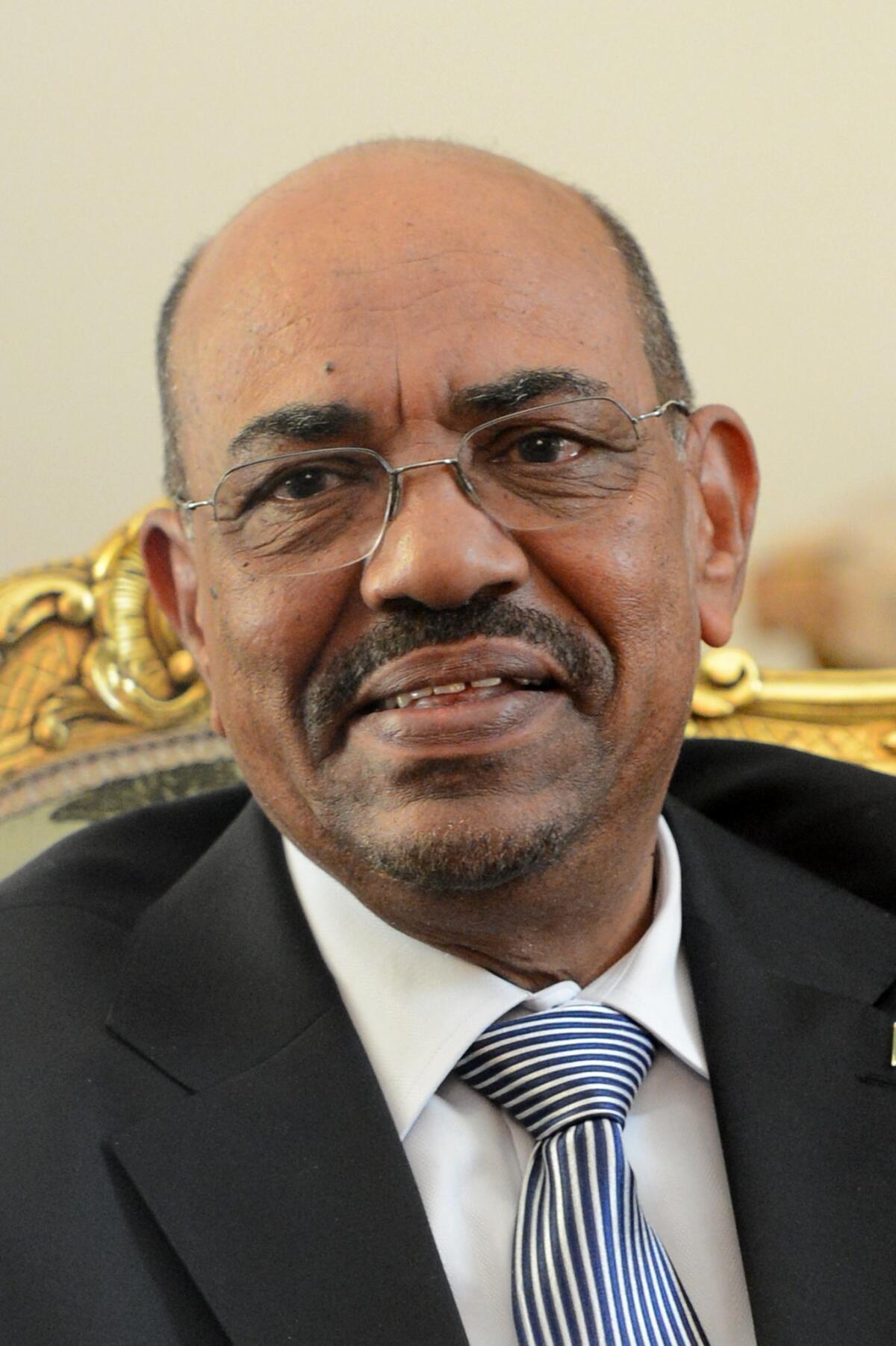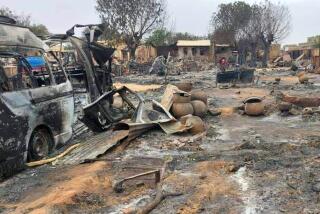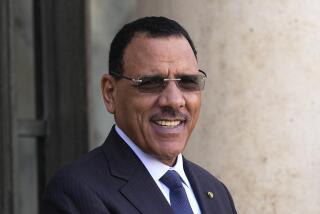Sudan coup: Military ousts President Bashir after months of protests
Sudan’s military ousted and arrested President Omar Hassan Ahmed Bashir on Thursday, delivering the deathblow to the authoritarian’s nearly 30-year rule after months of intense protests.
Defense Minister Awad Ibn Auf went on state television to declare “the uprooting of this regime,” saying the government, presidency and parliament were dissolved.
A military council will oversee a two-year transition period while suspending the constitution, he said. It will declare a three-month state of emergency and a one-month curfew of 10 p.m. to 4 a.m., he said. Sudan’s airspace was to be closed for 24 hours and its land and sea borders shut “until further notice,” Ibn Auf added.
Ibn Auf did not disclose Bashir’s whereabouts or those of his allies, including officials and ministers who had been rounded up. The ousted president, he said, was being held “in a safe location.”
Security services, he said, had long been keeping track of the “mismanagement, corruption and absence of justice” in state institutions, as well as “the poor economic conditions” and “lack of hope.”
The government’s “false promises” had forced the army’s hand, he said.
Bashir, 75, first came to power in a bloodless 1989 military coup.
Over the next decades, he would weather several bouts of protests and become an occasional pariah for harboring figures as disparate as Carlos the Jackal and Osama bin Laden. The U.S. in 1993 designated Sudan a state sponsor of terrorism.
Bashir has long faced an arrest warrant from the International Criminal Court on charges of war crimes and crimes against humanity for the killing of up to 400,000 people in Sudan’s Darfur region. However, other nations refused to arrest him.
He helped NATO’s campaign in Libya and offered fighters to Saudi Arabia and the Emirates to pursue their war in Yemen.
In the end, it was the economy that felled him. The secession of South Sudan in 2011 denied him the oil-rich regions that had been the financial bulwark of his government.
Astronomical prices for staples such as bread, queues for gas and a currency liquidity crisis pushed people to protest, despite Bashir’s insistence that those demonstrating were paid agents of his enemies.
“There was even a time that people said the Sudanese won’t go out or protest, but it happened, because the conditions were truly terrible,” said Mada Fatih, a Geneva-based Sudanese diplomat, in a phone interview on Thursday.

Thursday morning at about 5, state TV’s regular programming was interrupted by a banner asking people to wait for “an important statement from the Sudanese armed forces.”
Seven hours of martial music videos later, Ibn Auf appeared wearing fatigues to give his address as crowds massed before the military headquarters in the capital, Khartoum, to continue a days-long sit-in.
Protesters, expecting the good news of Bashir’s ouster, cheered as demonstrators clambered up walls to rip down banners and posters bearing his image.
Yet moments later, a sense of victory against what many considered a reviled and incompetent regime turned to anger as it became clear the military was taking control.
The military also removed then-President Gaafar Nimeiri 34 years years ago, nearly to the day.
“This is a dirty political game that is being played against the people. They removed Bashir, and one of his followers takes over?” said Ahmad Abbass, a 22-year-old protester in Khartoum contacted via social media.
The Sudanese Professional Assn., which supported the protests since their beginnings in December, said the army’s move was a coup aimed at “recycling the same faces and institutions against which our great people had revolted.”
“We call upon our great people to continue their brave protest.”
It also addressed the military, especially those who in recent days had protected demonstrators from attacks by branches of security services loyal to Bashir. (Nine people had been reportedly killed in Sudan since protests began.) The association asked soldiers to stand on the side of the people against the attempt to “steal the revolution.”
From the archives: Official Pariah Sudan Valuable to America’s War on Terrorism »
Ibn Auf said in his address that Sudan’s judiciary, embassies, diplomatic missions and organizations would be unaffected by the change. The nation, he said, would continue to adhere to all treaties and charters.
In the meantime, all political prisoners, including those held by the country’s National Intelligence and Security Service, would be released.
U.S. State Department spokesman Robert Palladino on Thursday called on transitional authorities to show restraint and bring civilians into government as soon as possible, before the two-year period announced.
He praised the Sudanese people for peacefully exercising “their legitimate demand for an inclusive government that respects human rights.”
But U.S.-Sudanese discussions on evaluating the governments’ relations had been suspended, Palladino said, and U.S. citizens were “being urged to shelter in place.”
Fatih, the Sudanese diplomat, said that although protesters had expected more, he saw the army’s move as a positive one.
“You can’t do anything without the intervention of the army and its guarantee of security and peaceful transition,” he said.
“At the end you’re playing a dangerous game and you don’t want things to lose control.”
Staff writer Tracy Wilkinson in Washington contributed to this report.
More to Read
Start your day right
Sign up for Essential California for news, features and recommendations from the L.A. Times and beyond in your inbox six days a week.
You may occasionally receive promotional content from the Los Angeles Times.







